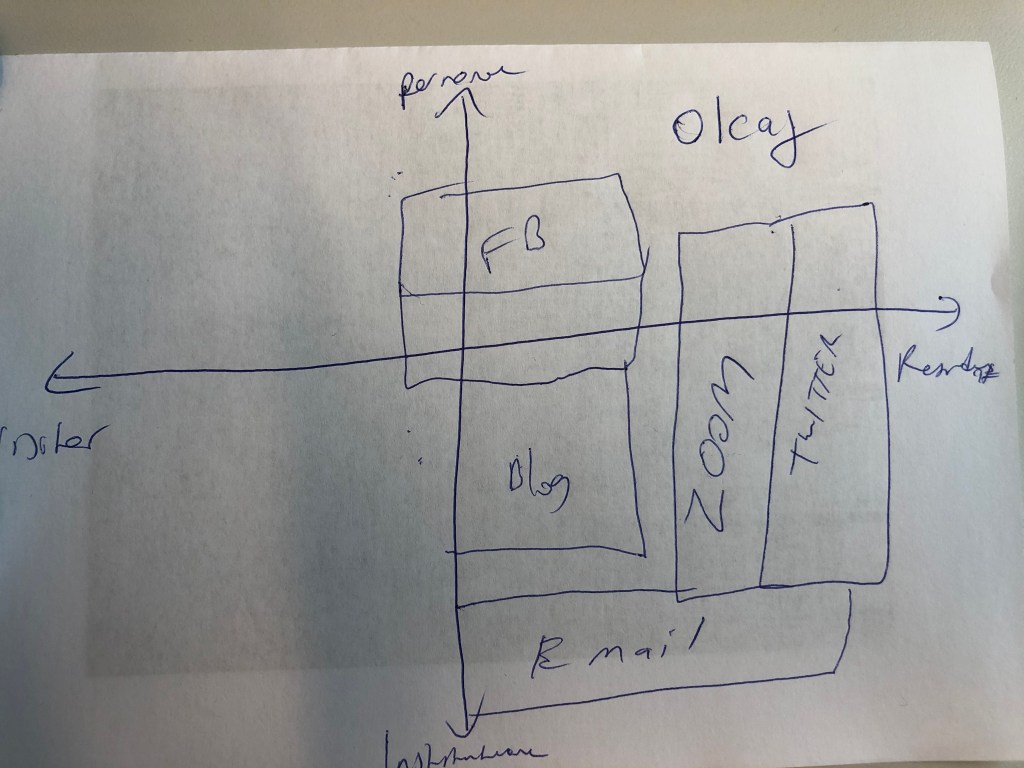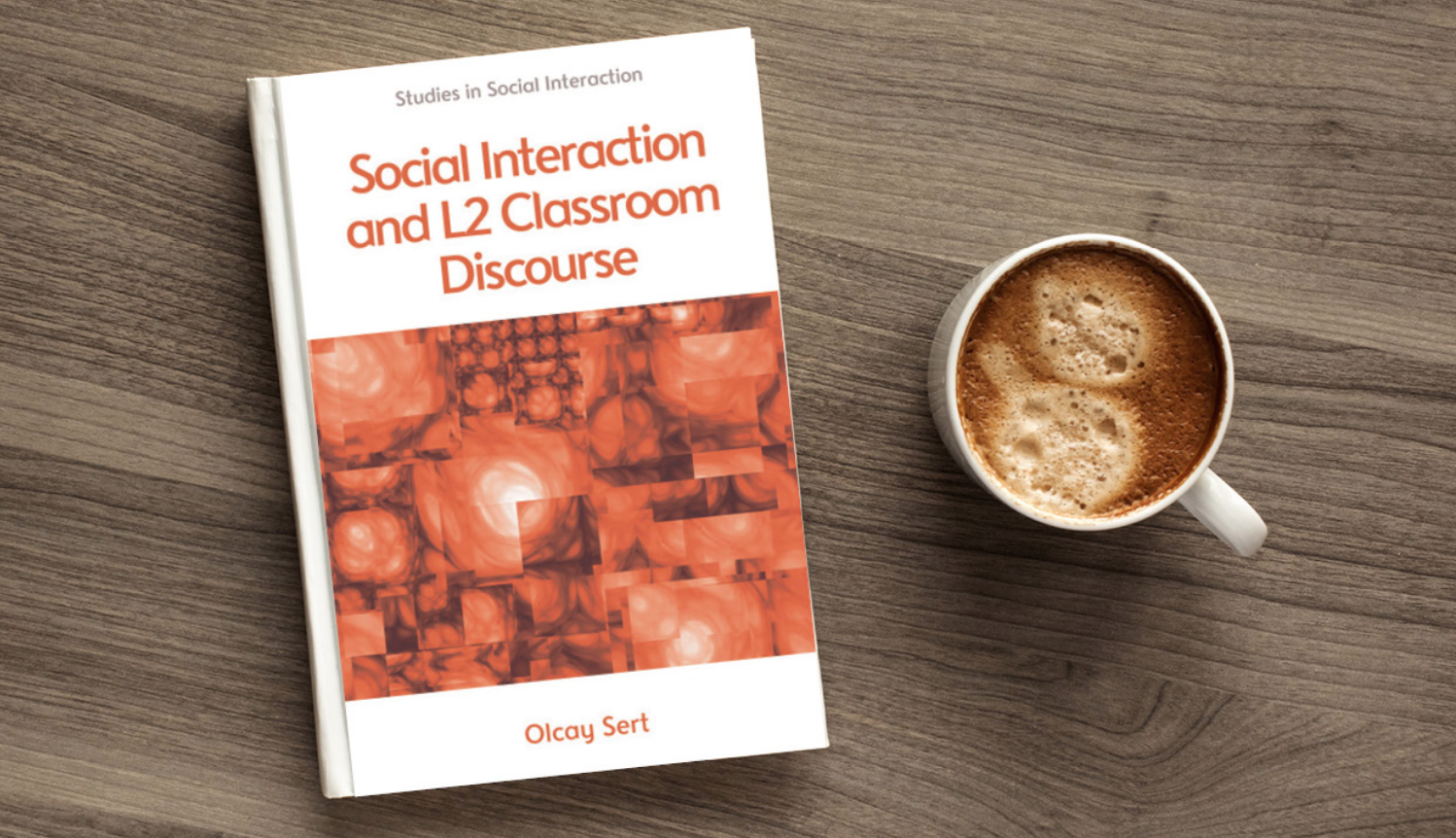My last blog post was on January 15, 2020. Almost 9 months ago… What went wrong? Why did I stop? Have I been too busy? Have I dedicated too much time to micro-blogging (i.e. Tweeting)? Or should I blame COVID-19? Not that I had it, I guess… And may be that is why I decided to take this Open Networked Learning (ONL) course: I did want to get back to blogging. I also wanted to go through a new learning experience with digital tools, so that I could be more useful to my students, to my colleagues, and to whoever willingly or accidentally feels my online presence. Yes, you, who is reading this 🙂 Bear with me, in this first post about the ONL course, I will explain 2 things that I “took away” from this course. They may change me. First, I will reflect on David White’s visitor/resident metaphor for online presence. Second, I will reflect on how I came across with the concept of “Digital Design Literacy” (Pangrazio 2016), and how I gradually have developed an interest in it. Yes, both may sound boring to external eyes, but as I said, bear with me 🙂

Figure 1 was drawn in less than 30 seconds when David White asked us to reflect on our own online presence, considering whether we use digital platforms for personal vs professional purposes and if we just temporarily use them for given tasks (i.e. visitor) vs or do these platforms become spaces where we use on regular basis and develop identities in (i.e. resident). His question and webinar made me think about these issues, and I noticed that I am a resident in a number of digital platforms mostly for professional purposes. I noticed that I want to have some more professional and personal time on WordPress as writing helps me think, reflect, and make future-oriented decisions. I also thought about my future courses, and I decided that I want to create and make use of digital spaces with my students, where they will not just be visitors for academic purposes, but they will reside there, develop personal and professional identities there, and grow there… I believe that we can grow in digital communities which are constructive, open, and interactive. Like our very own “Problem Based Learning 15 (PBL 15) group” (see our introduction video here) which we created for this course.
As part of our first task in the PBL Group, we created a visual that depicts various elements of digital literacy. My task was to investigate Critical Digital Literacy (CDL), and my journey in this investigation took me to a recent article which re-conceptualized CDL as “Digital Design Literacy” (Pangrazio 2016). The concept of digital design literacy, in my opinion, is liberating and it made me think about my past and future teaching experiences. The concept views students and teachers as active agents who are not just “consumers” of digital literacy, but are “doers” “producers” “designers”. I am already thinking of designing 2 of my forthcoming courses by putting the concept of digital design literacy at the centre of some of the activities, which will help students learn by design, critically. I can already see that the concept has gotten into me although at first I was critical towards it 🙂
This very short reflection on the introduction phase of the ONL course, I hope, gave you some ideas on the transformative power of this course. It engaged me from the beginning, it allowed me to investigate concepts I was not familiar with, and it is already making an impact on my future-oriented decision making. What is more important than everything I’ve written so far is the developing collaboration and co-operation we have within the PBL 15 group. I am not changing and evolving alone, just myself. I am in a dynamic group with like-minded friends: Ebba, Malin, Bianca, Zhao, Davis, Thashmee. I look forward to designing, creating, and working with them this semester. Being a student again, with all the experience I had, and the joint experience of this group is priceless. I hope I will be writing more posts on this space, not just ONL-related, but more. I am here to reside.
Olcay
11.10.2020, Västerås
Reference
Pangrazio, L. (2016). Reconceptualising critical digital literacy. Discourse: Studies in the cultural politics of education, 37(2), 163-174.

ONL202 Topic 1: It is interesting to see how you have focussed on digital design literacy and the co-creation together with students. Your blog made me want to look further into this issue. I was also fascinated by the fact that you consider yourself to be a digital resident more than a visitor – and both in a professional and private/personal context. Do these get blurred for you (private and professional)? If yes, do you conceive this to be a problem?
LikeLike
Thanks for your comment. I kind of consider myself as resident in some platforms and visitor in others. On Twitter, I can say I am mostly a resident with my professional identity (e.g. I’m running an academic journal account). However, sometimes the roles transcend and I stop myself from sending personal messages sometimes. It is a challange, rather than a problem I would say. A challenge that I’ll be happy to tackle…
LikeLike
Learning to become personal in the digital arena is a challenge in the modern world as more social activity moves from the physical and immediate arena to the digital arena. It is fascinating to read your response to your journey in the digital spaces and your desire to help your students develop as residents into these new spaces. The concept of digital design literacy as you explain ti makes me want to explore and discover more about this.
LikeLiked by 1 person
Thanks for your response David. Let’s see if they will be willing to be residents 🙂 Well, I will try 🙂
LikeLike
As a visitor to most digital communities, I feel I have a few things to catch up, but I got confidence by reading your blog post that it is not impossible. I really like the way you are describing yourself as a student, I think we need to change perspectives quite often in order to understand our own capacities to actually be supportive to our students. I look forward to the next part of the OLN course after our reflection week and how we in PBL15 will continue our work and learn together.
LikeLiked by 1 person
Thanks for your comment Ebba. It is definitely not easy, but as you say, not impossible either. 🙂
LikeLike